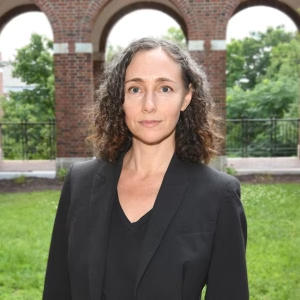The Center for Ethics and Values holds regular public forums focusing on significant ethics issues faced by researchers across the university, by students, and more broadly by society.
To receive regular updates about these events, follow us on myUMBC, Facebook, or LinkedIn, or sign up here to receive Center news.
Free & Open to the Public
Come Join the Conversation!
Register at the links below
Directions, Parking, & Campus Map
These public forms are open for full participation by all individuals regardless of race, color, religion, sex, national origin, or any other protected category under applicable federal law, state law, and the University’s nondiscrimination policy.
UMBC is committed to creating an accessible and inclusive environment for all faculty, staff, students, and visitors. To request accessibility accommodations, please contact us at ethics@umbc.edu.
What Would You Do Alone in a Cage with Nothing but Cocaine? A Philosophy of Addiction
Evelyn Barker Memorial Lecture

New Date : Monday, March 9th, 2026
7:00 – 8:30 pm
UMBC Fine Arts Recital Hall
This event is part of the Dresher Center’s
Humanities Forum

Click Here to Preregister
Preregistration is recommended, but not required
Hanna Pickard, Bloomberg Distinguished Professor of Philosophy and Bioethics and Krieger-Eisenhower Professor, Johns Hopkins University
Hanna Pickard is Bloomberg Distinguished Professor of Philosophy and Bioethics and Krieger-Eisenhower Professor at Johns Hopkins University
Addiction science is at an impasse. Rates of addiction remain high. Translational results from decades of research conducted within the dominant brain disease paradigm are shockingly meager. Meanwhile, theories of addiction multiply and compete, fomenting disagreement about something as apparently simple as how addiction should be defined. Ultimately the cost of this impasse is borne by people with addiction themselves. Drawing on philosophy together with sources ranging from the history of the science of animal models to the voices of people who live with addiction, I present a new paradigm that shifts our gaze away from a broken brain and onto the psychology and humanity of people who struggle with drugs.
Many thanks to our cosponsors: Dresher Center for the Humanities; Public Heath Research Center; Human Context of Science and Technology Program
Progressive Confucianism, Nei-Wai Citizenship, and the Family
Eminent Scholar Lecture

Monday, April 13, 2026
4:00 – 5:30 pm
UMBC Fine Arts Recital Hall
Click Here to Preregister
Preregistration is recommended, but not required
Stephen C. Angle, Mansfield Freeman Professor of East Asian Studies and Professor of Philosophy, Wesleyan University
Stephen C. Angle is Mansfield Freeman Professor of East Asian Studies and Professor of Philosophy at Wesleyan University. Angle specializes in Confucianism and comparative philosophy, and his research focuses on philosophy’s role in human rights, politics, and ethics both in East Asia and globally. Angle is the author of five books and co-editor of two others, including Growing Moral: A Confucian Guide to Life (Oxford, 2022) and Progressive Confucianism and Its Critics: Dialogues from the Confucian Heartland (co-edited with Yutang Jin; Routledge, 2025).
In its most general sense, progressive Confucianism is the project of critically developing the on-going Confucian tradition in light of insights and challenges from modern thinkers and societies. Two of the core commitments of the tradition are that (1) all people have the inherent possibility of becoming more virtuous, and our socio-political arrangements should support such growth as much as possible; and (2) internal (or nei) moral growth is inextricably linked to external (or wai) activity, which is summed up in the regulative ideal of “inner sageliness, outer kingliness.” In a contemporary, post-monarchical context, the most encompassing role for individuals can thus be called nei-wai citizenship. The thesis of this presentation is that playing one’s role within the family is a key aspect of nei-wai citizenship, and that such a reframing allows us to see filiality in a broader light than most recent discussions. By viewing filial children as not only having particularist care for their parents but also — as citizens — being responsive to the ways more general structures impact their parents (and others’ parents), we can both answer some of the most pressing objections to contemporary Confucian-inspired social policies and also offer a compelling update to pre-modern Confucianism’s famous analogy between family and state.
Many thanks to our cosponsors: Asian Studies Program; Philosophy, Politics, Economics, and Law Program
Interested in information and recordings of our past forums? Check them out below:
2024-2025 Public Forums


